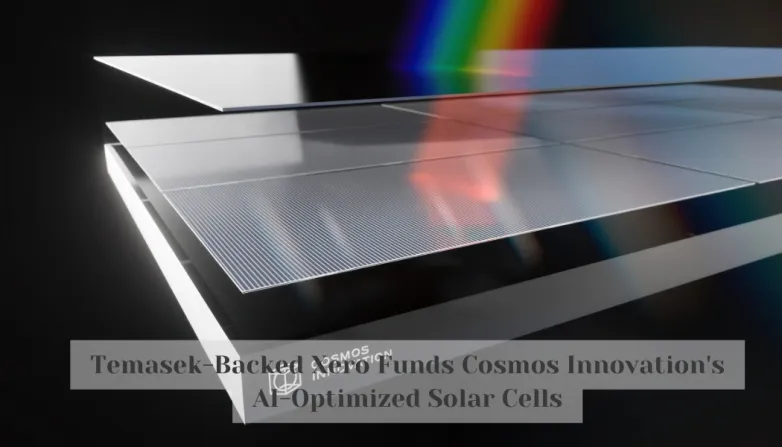Temasek-Backed Xero Funds Cosmos Innovation's AI-Optimized Solar Cells
- Cosmos Innovation has raised $19.7M to build self-learning fab in the solar and semiconductor space. Experience a 10x acceleration in process recipes with top semiconductor companies and capture energy from the sun more efficiently with perovskite silicon tandem solar cells.

Cosmos Innovation has secured a total of $19.7 million in funding, including a seed round of $2.88 million in 2020 and a Series A of $16.8 million from earlier this year. Led by Temasek's Xora Innovation, the Series A saw investments from Innovation Endeavors, Two Sigma Ventures, DeepMind CEO Demis Hassabis, MIT professor Tomaso Poggio, You.com CEO and AIX Ventures managing partner Richard Sacher, and Western Technology Investments. The startup's AI recipe optimization platform Mobius is used to accelerate the development of its solar cells, and it plans to create the world's first self-learning fab in the solar and semiconductor space. It has already seen a 10x acceleration in process recipes and improvements in target performance with top semiconductor companies. Its technology is being used to build perovskite silicon tandem solar cells, which are more efficient than conventional solar cells as they can capture energy from the sun more efficiently. The total market opportunity is in the trillions of dollars and the applications extend to residential rooftop panels, commercial and industrial spaces, and power plants.
What Market Opportunity Does Cosmos Innovation's Solar Cell Tech Unlock?
- Cosmos innovation has successfully secured a total of $19.7 million in funding, which includes a seed round of $2.88 million and a Series A of $16.8 million.
- The startup's AI recipe optimization platform Mobius is used to accelerate the development of its solar cells.
- With the help of its technology, Cosmos innovation is building perovskite silicon tandem solar cells, which are more efficient than conventional solar cells.
- These solar cells can capture energy from the sun more efficiently, unlocking a market opportunity in the trillions of dollars.
- These solar cells can be used in residential rooftop panels, commercial and industrial spaces, and power plants.
- The new technology can lead to a reduction in the cost of renewable energy by improving the efficiency of collection.
- The new solar cell technology can also lead to an increase in energy sustainability, making it easier for households to switch to renewable energy.
Also read

